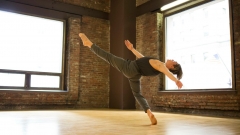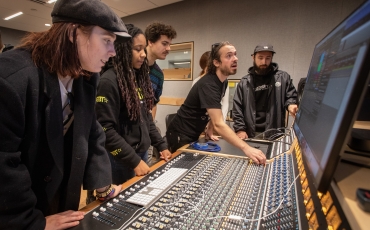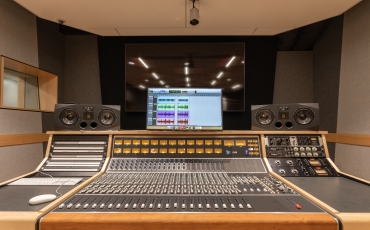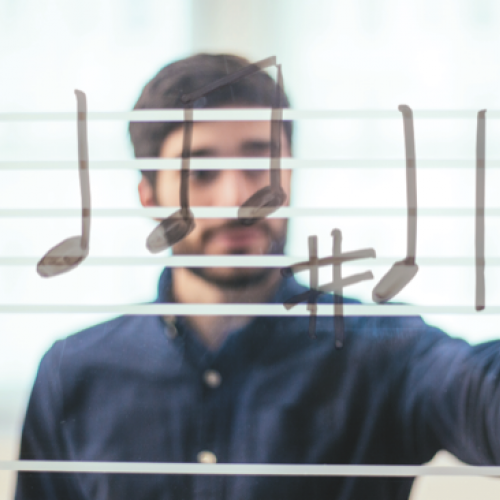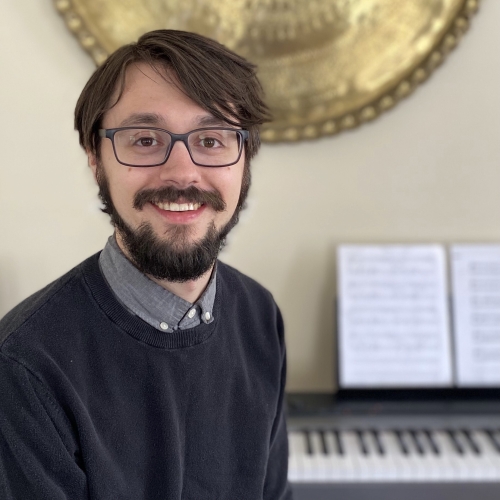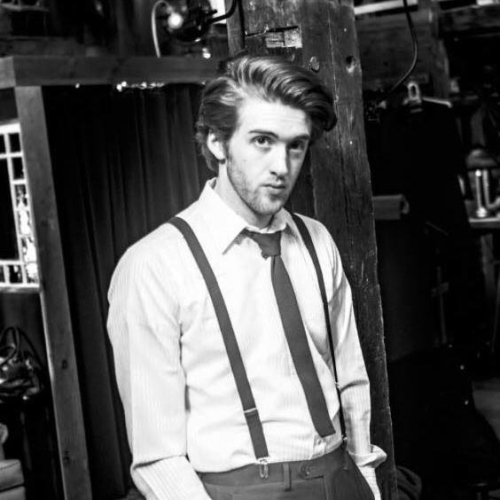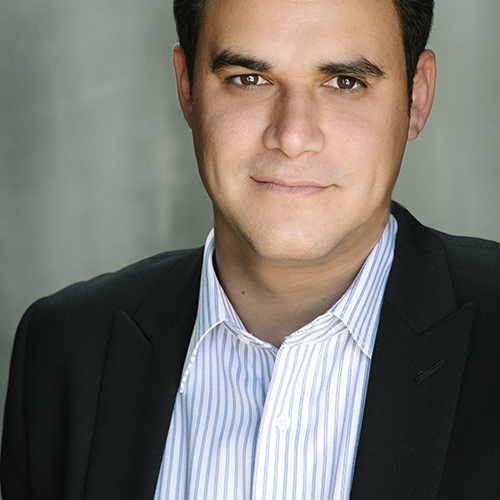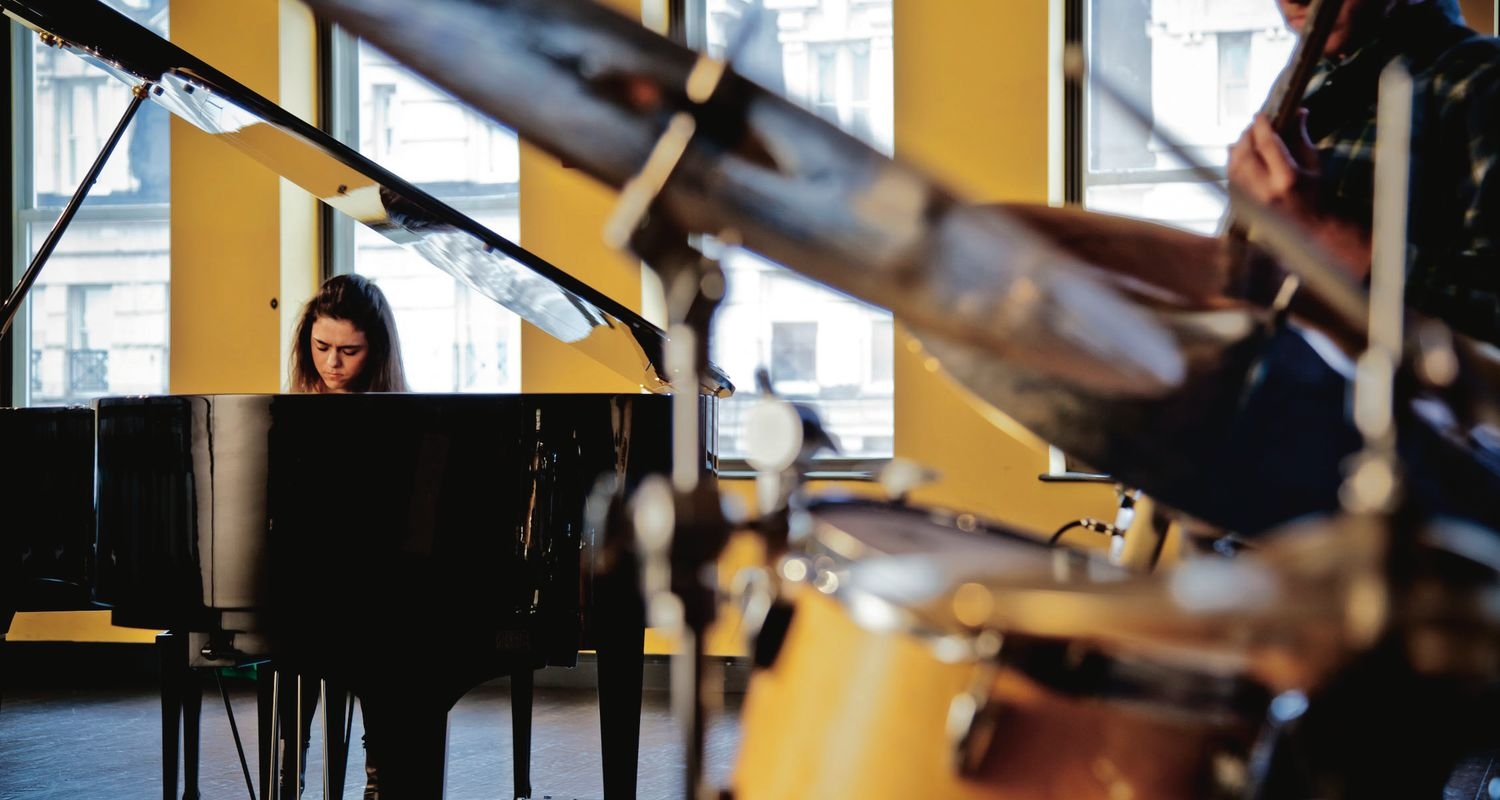
Music - Composition (BM)
Music Composition Major
As a student in the Music Composition Bachelor of Music (BM) degree program, you’ll be able to create your own path toward becoming a professional music composer. Learn music composition for every genre of music, and specialize in the genre that most interests you—including big band, classical, gospel, alternative rock, electronica and more. Small class sizes ensure you get proper attention and the opportunity to grow, and an emphasis on interdisciplinary collaboration allows you to work creatively with Film, Animation, Theater and Dance students. In UArts’ four-year, 120-credit Music Composition BM degree program, you’ll find your own distinct voice and receive instruction from different teachers with their own unique expertise.
In 2020, the School of Music was ranked #2 in The 10 Best “Hidden Gem” Music Schools by Music School Central.
Gallery
Composition majors have composed music for live performances and studio recordings; re-scored films using virtual instruments and samples; designed soundscapes for citywide light shows; and collaborated with ProJazz in Santiago, Chile, and the Liverpool Institute for the Performing Arts in the U.K.
Each semester, visiting artists—including a professional chamber music ensemble—visit UArts to perform, record or discuss working as a professional musician. Students learn how to bring their creations to life.

University of the Arts recently celebrated the grand opening of the Laurie Wagman Recording Studios on the 11th floor of Terra Hall. On Wednesday evening, Nov. 13, School of Music faculty, staff, students, university administrators and honored guests gathered to dedicate the space to its benefactor, Trustee Laurie Wagman. The opening of these state-of-the-art recording studios marks the culmination of the School of Music relocation and renovation project, which started in June 2018 and also features brand new rehearsal, classroom, office, lab and production spaces.
The dedication celebration included remarks from UArts President and CEO David Yager, School of Music Dean Micah Jones BM ’97 (Jazz Performance) MM ’99 (Jazz Studies) and Laurie Wagman. Remarks were followed by a ribbon-cutting and performance by UArts’ Transfusion ensemble, a highly dynamic group that programs an eclectic mix of sounds and primarily performs newly commissioned works by current students, alumni and faculty.
“The studios are a transformational gift to our School of Music and MBET program, which is experiencing incredible growth,” said Yager upon the announcement of the gift. “Laurie Wagman is deeply connected to the students and programs at UArts through her commitment of time and financial support and her personal relationships with students.”
Both recording studios are equipped with state-of-the-art, 24-channel API consoles and Antelope interfaces. There is a surround sound system in Studio A, while Studio B has a pair of Adam reference monitors. Both studios have a number of outboard compressors, equalizers and other effects processors. Studio A will also function as a fully analog space equipped with a 16-track tape machine.
“These are some of the best spaces I have ever seen in an urban university setting,” says Dean Jones. “Now, we have an environment where our students’ creativity can thrive. I cannot express how grateful we are for Laurie Wagman’s unwavering support of the school and where it is heading. Likewise, to our president, who has not only encouraged us to reimagine our campus, but has taken action to make those dreams a reality.”
Wagman’s generosity also helped create Laurie Wagman Presents, an MBET concert series managed and promoted by the program’s students, including Out of the Box, a series which promotes experimental, electronic and improvised music, mostly composed by MBET students and often featuring guest artists working at the fringes of their disciplines.
Wagman’s philanthropic focus is in the arts, education and social services, and she has been the recipient of numerous awards for her dedication to young people. She is the founder and president of American Theater Arts for Youth lnc. and American Family Theater. Under her four-decade leadership, the two organizations have presented professional, original musical productions to more than 32 million students throughout the U.S. In addition to University of the Arts, Wagman also serves on the boards of the Kimmel Center for the Performing Arts, the National Children’s Theater Alliance and the Philadelphia Chamber Music Society.
Learn more about about Uniquely UArts, the campaign for creative capital.
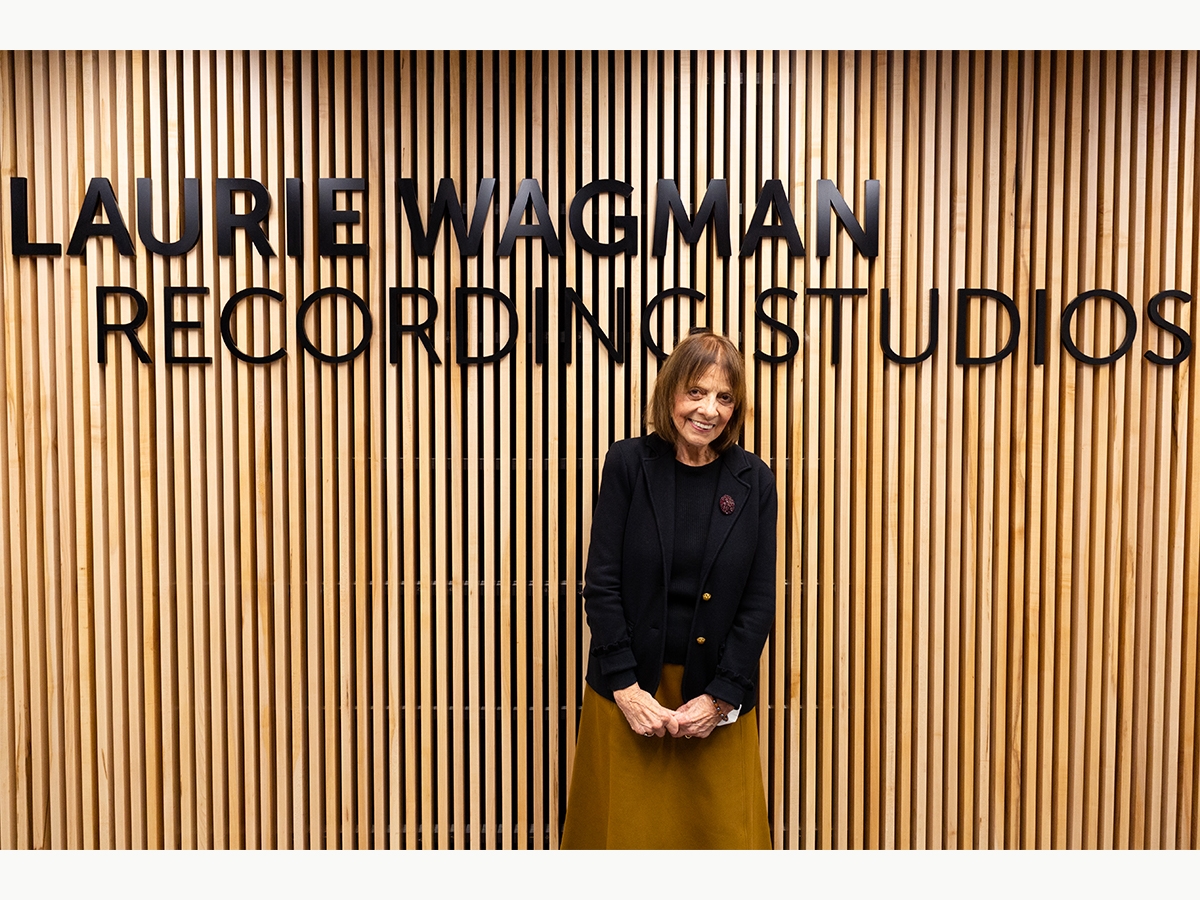
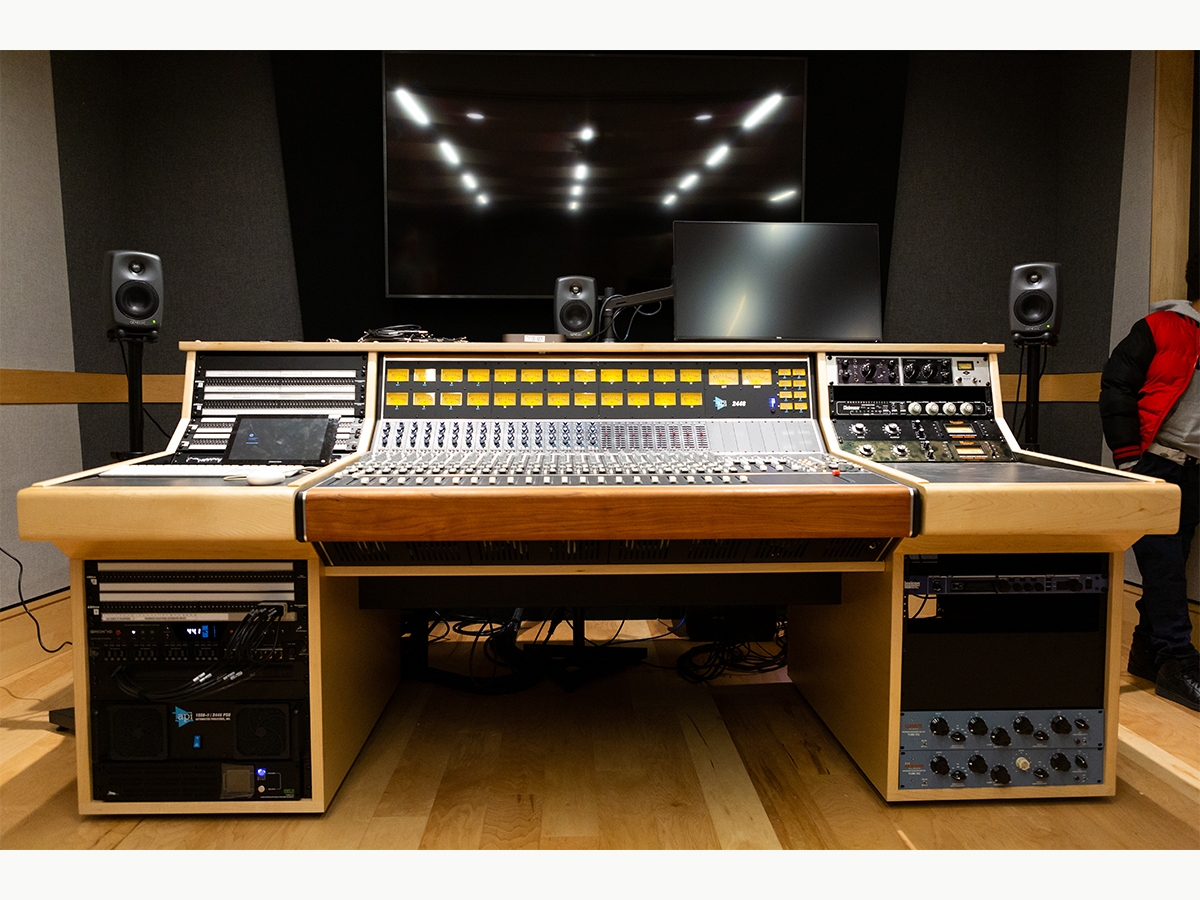
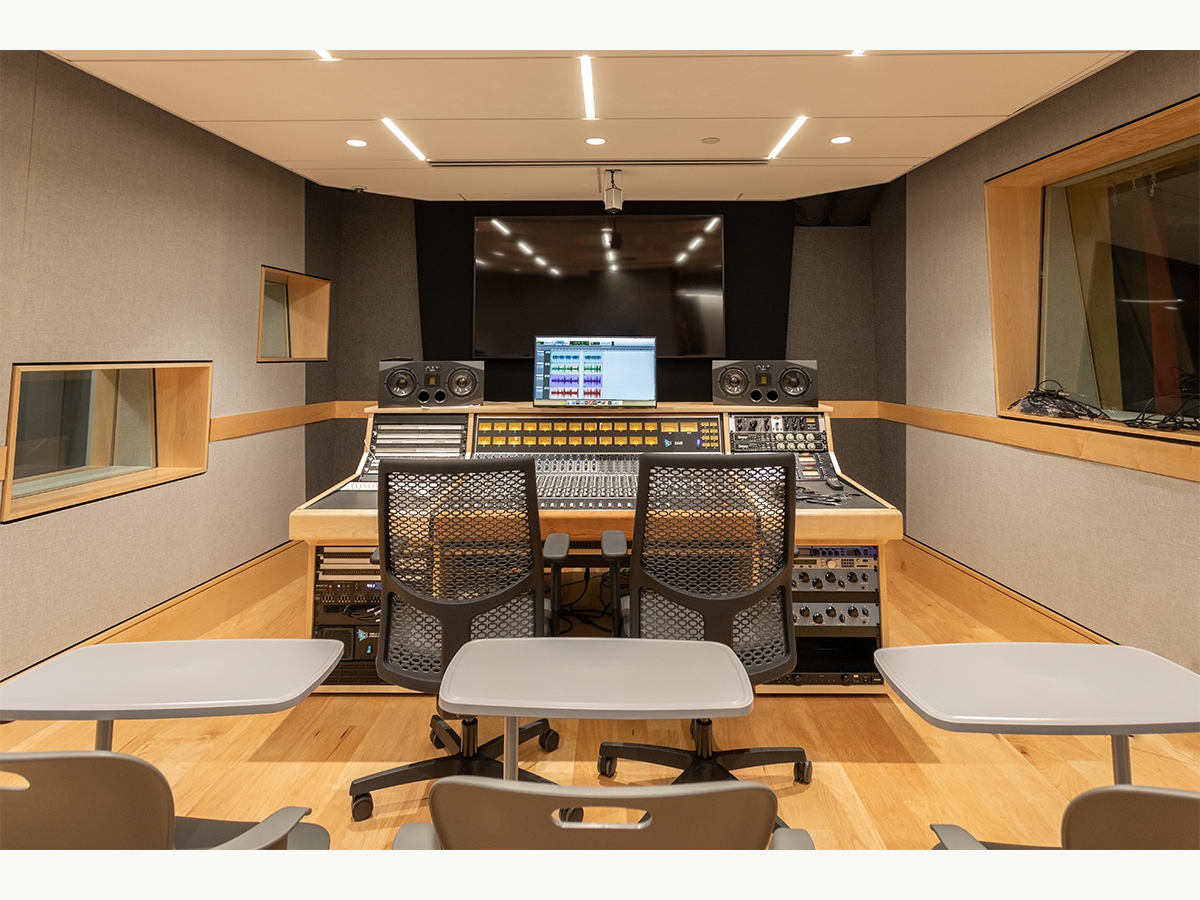
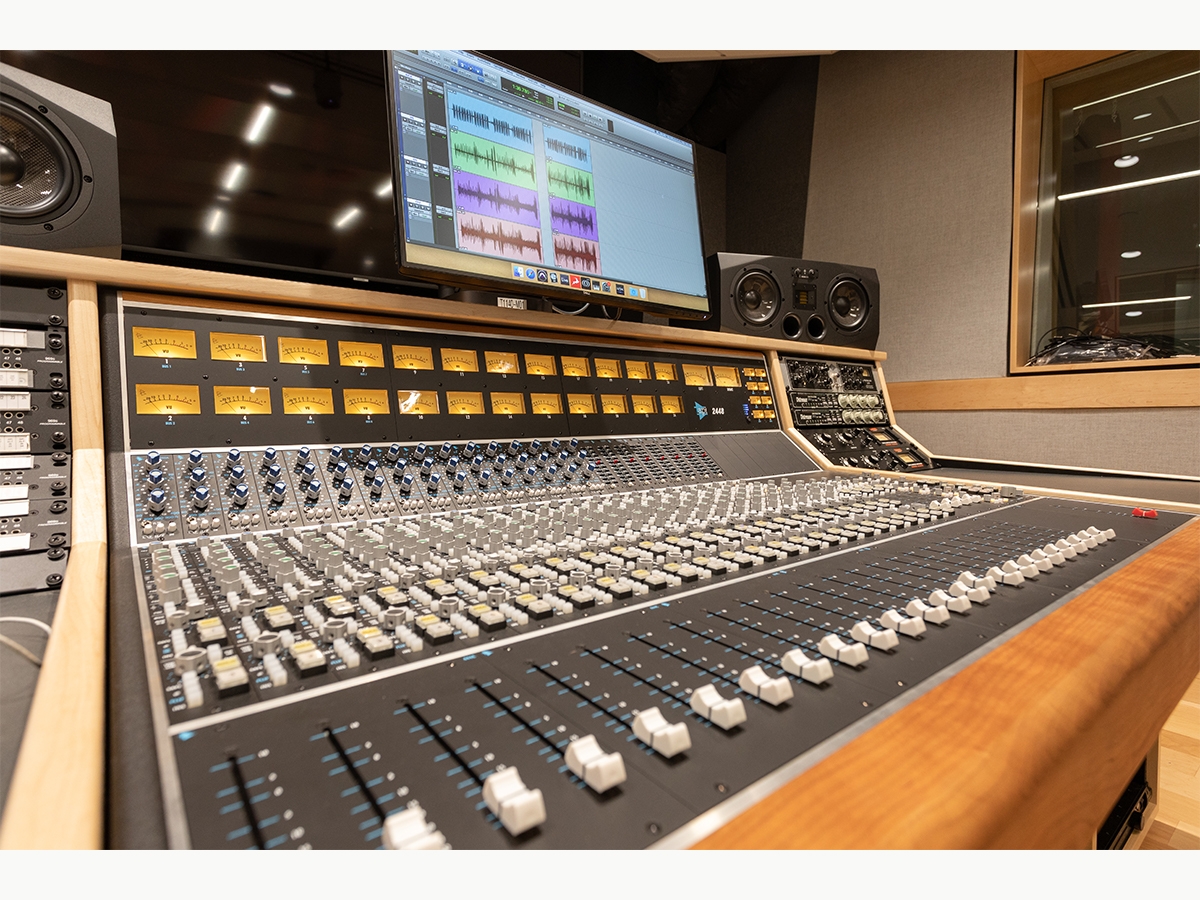
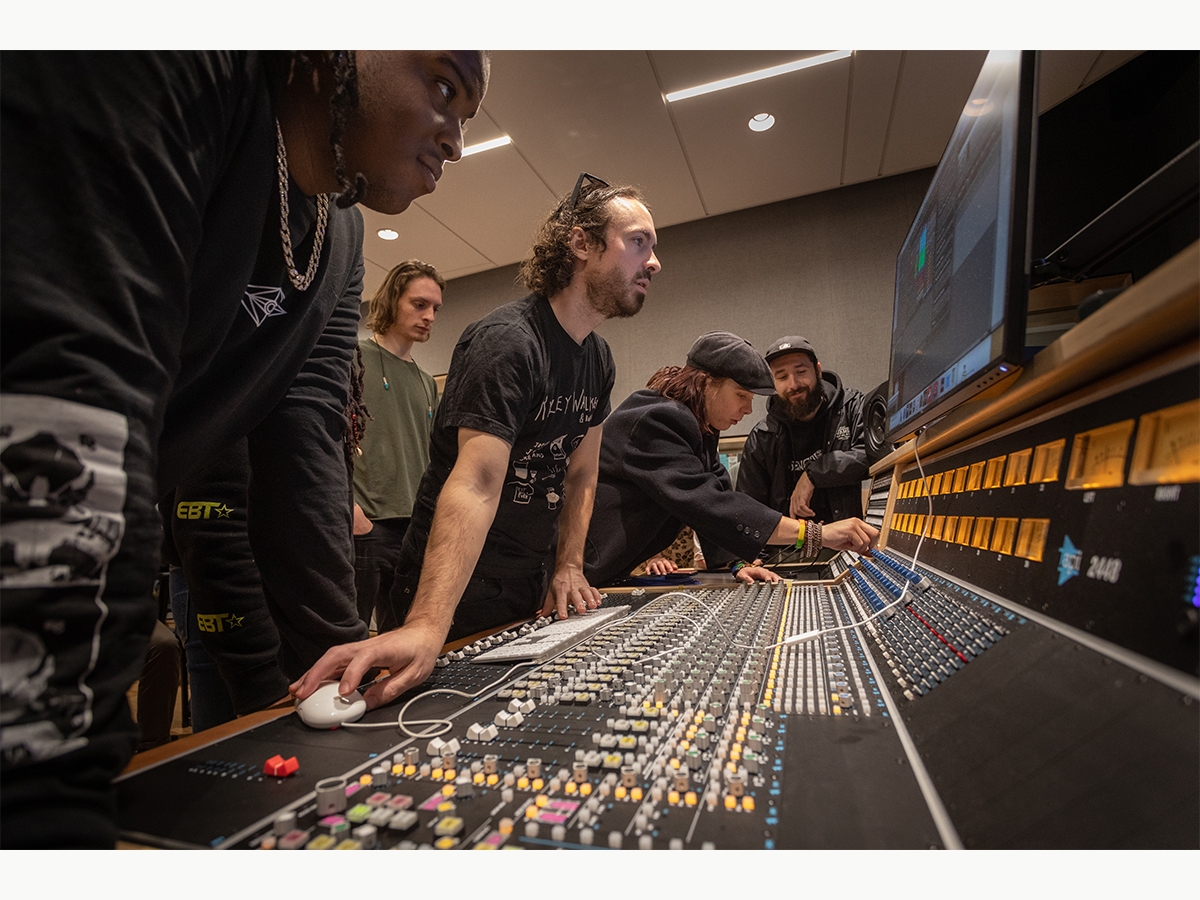
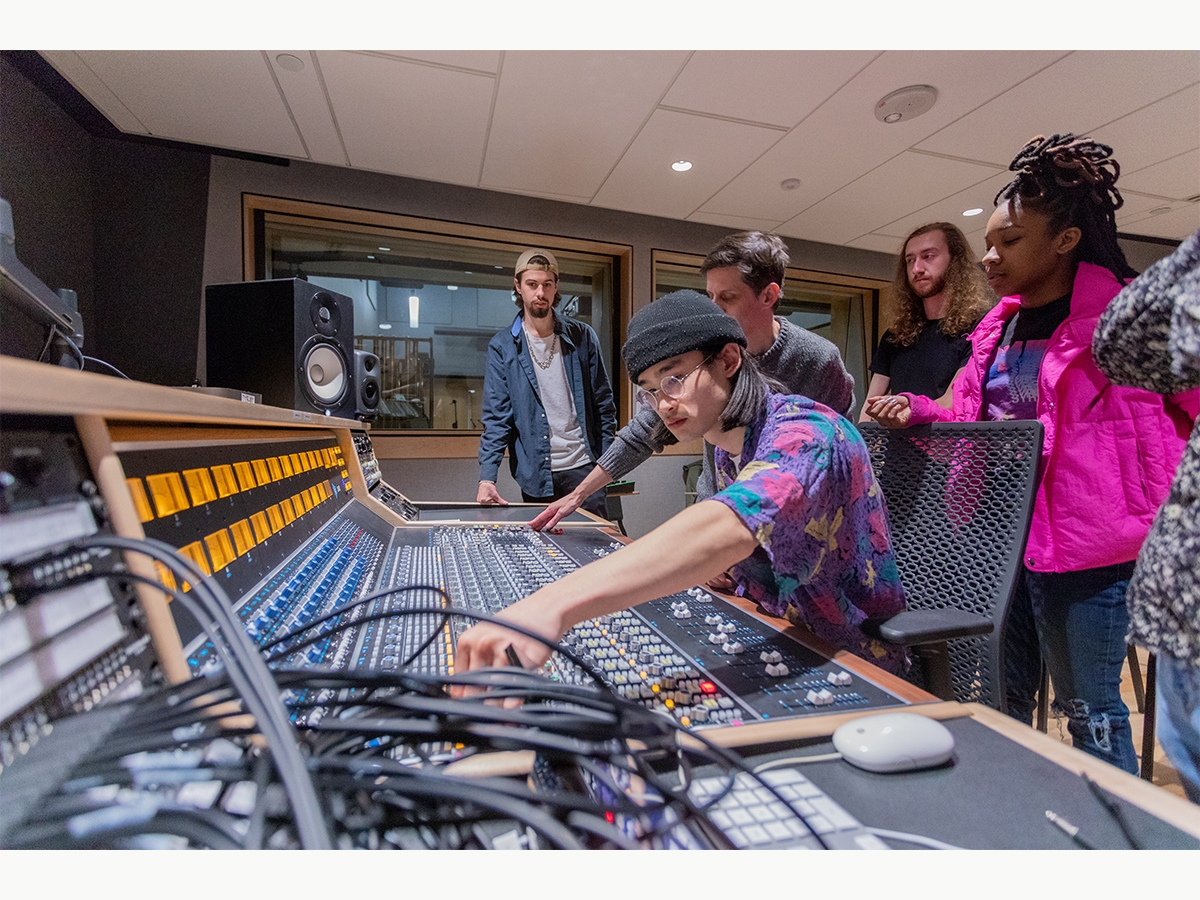
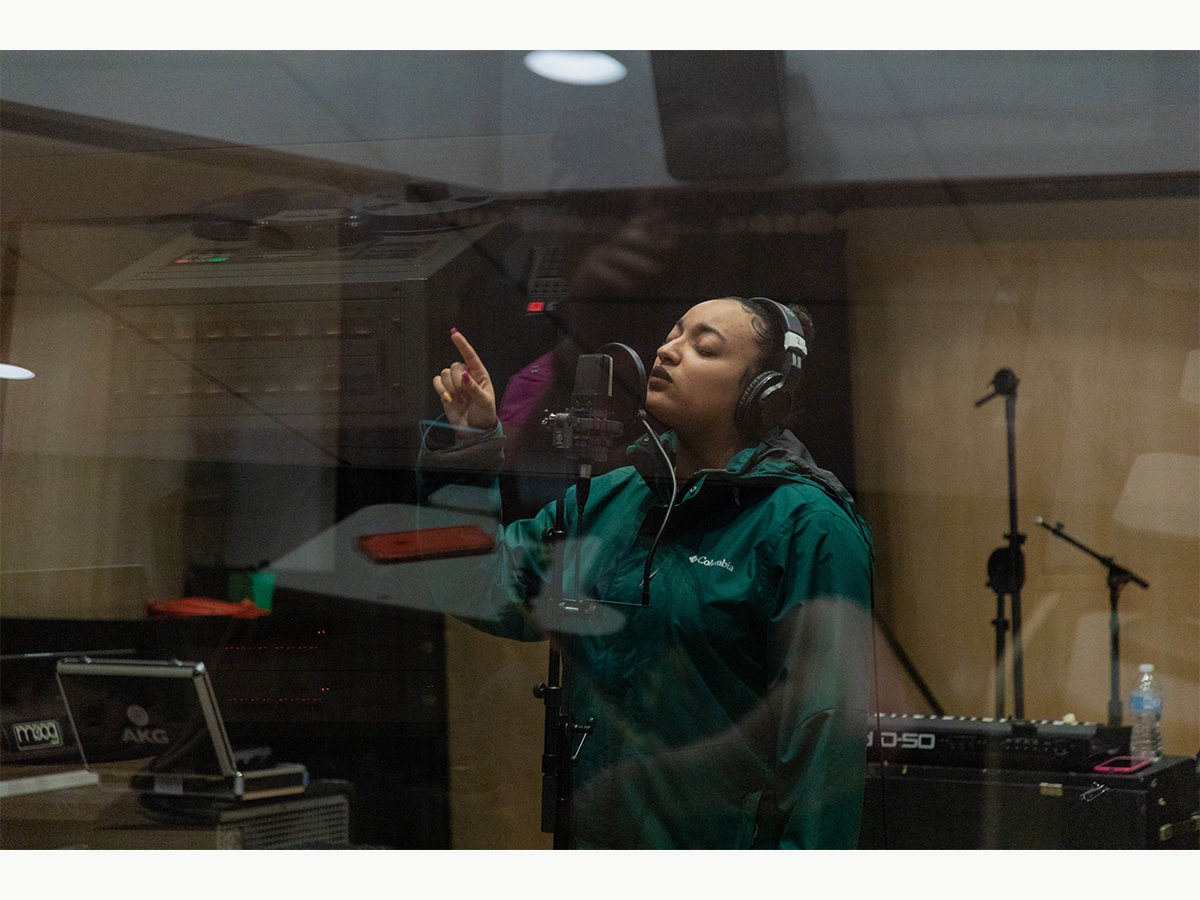
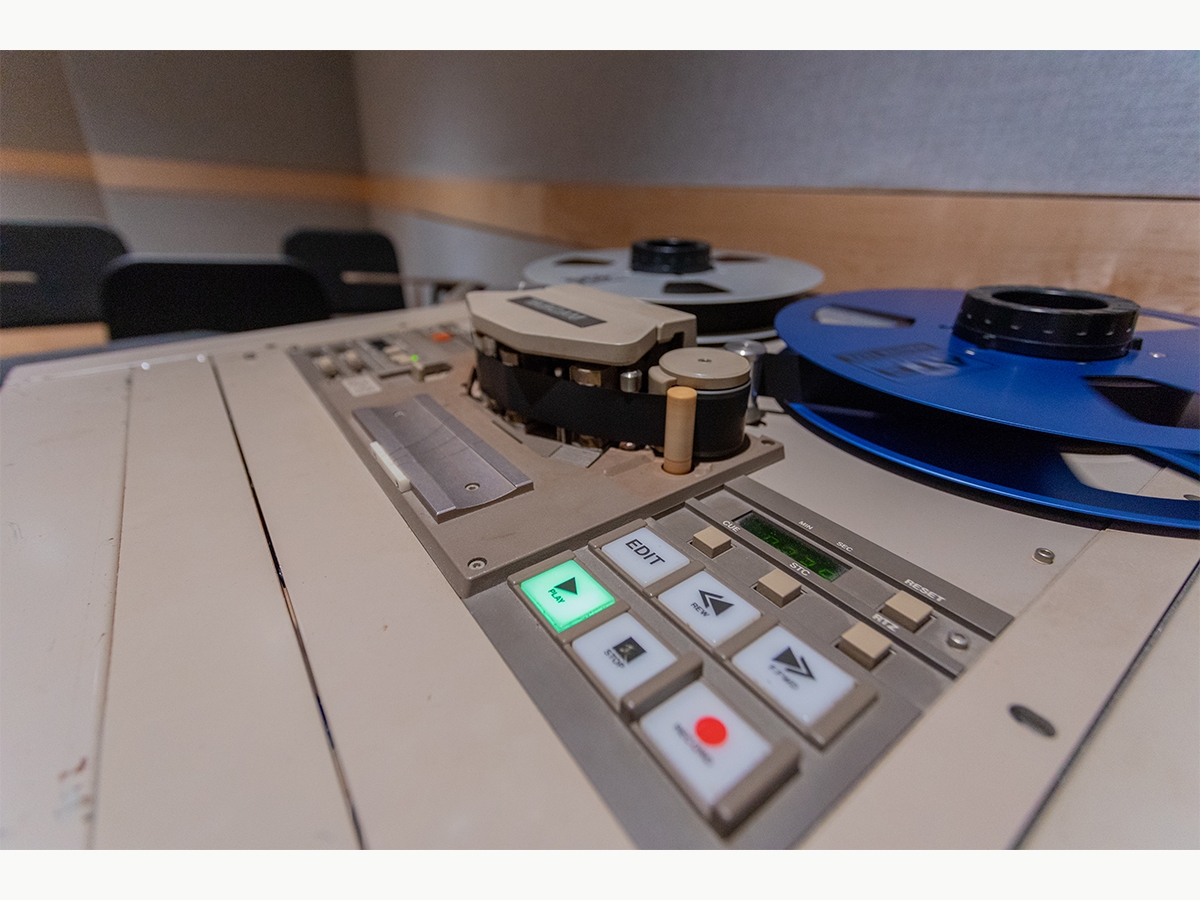
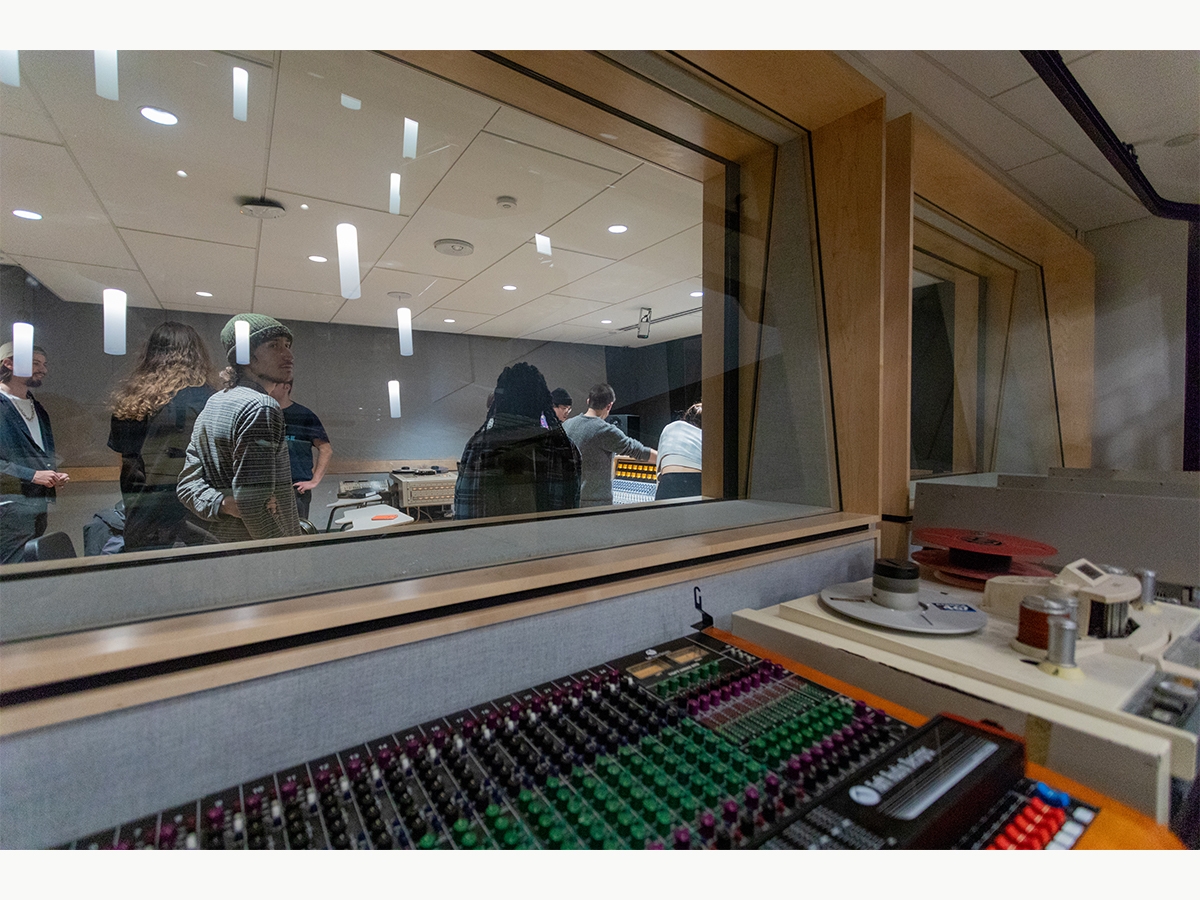
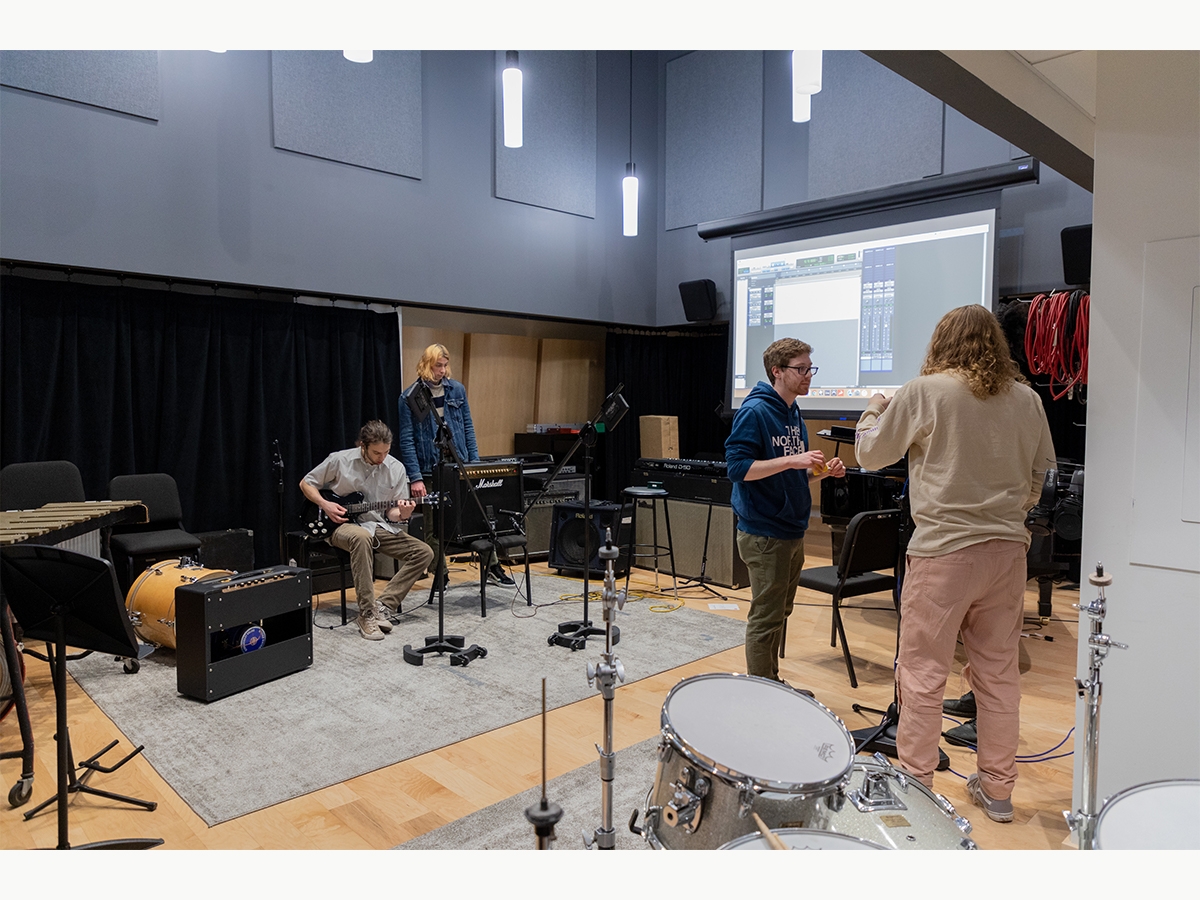
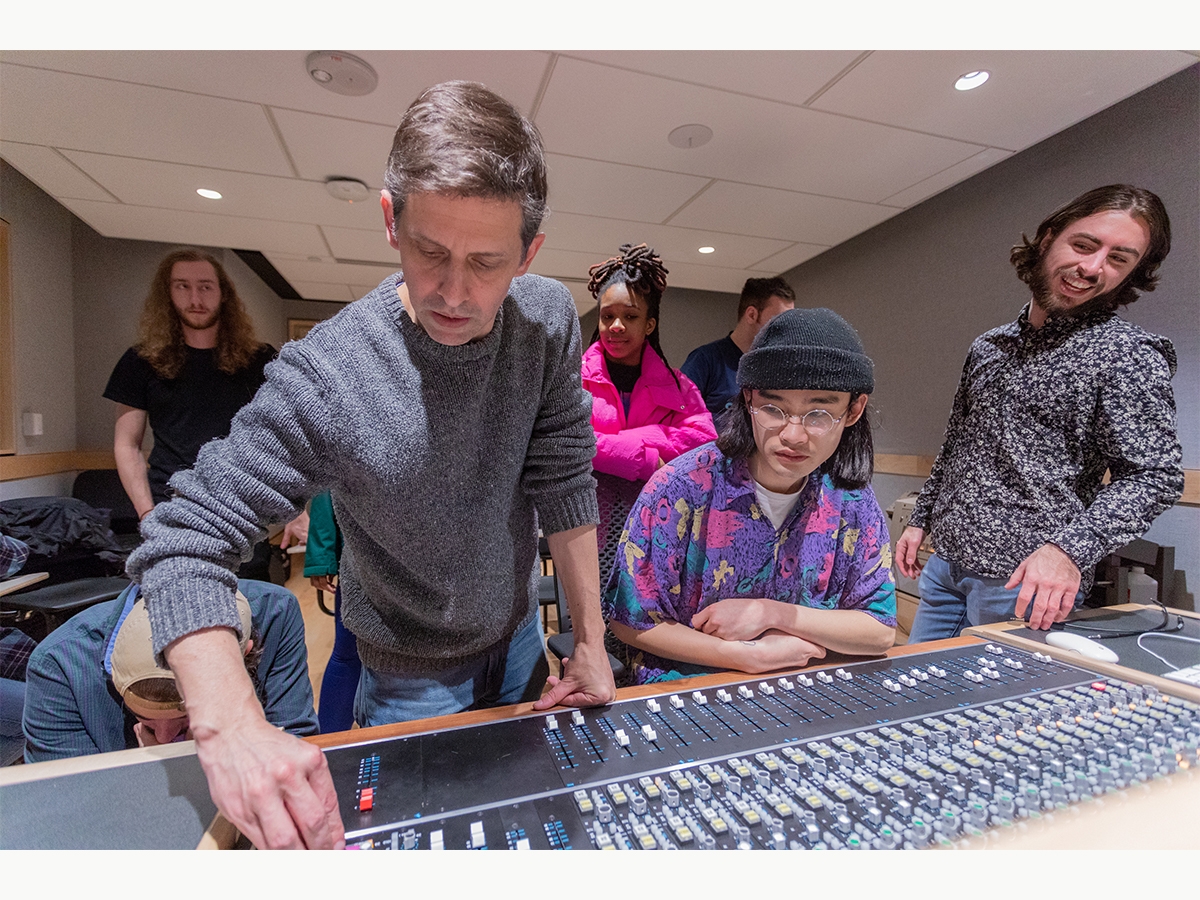
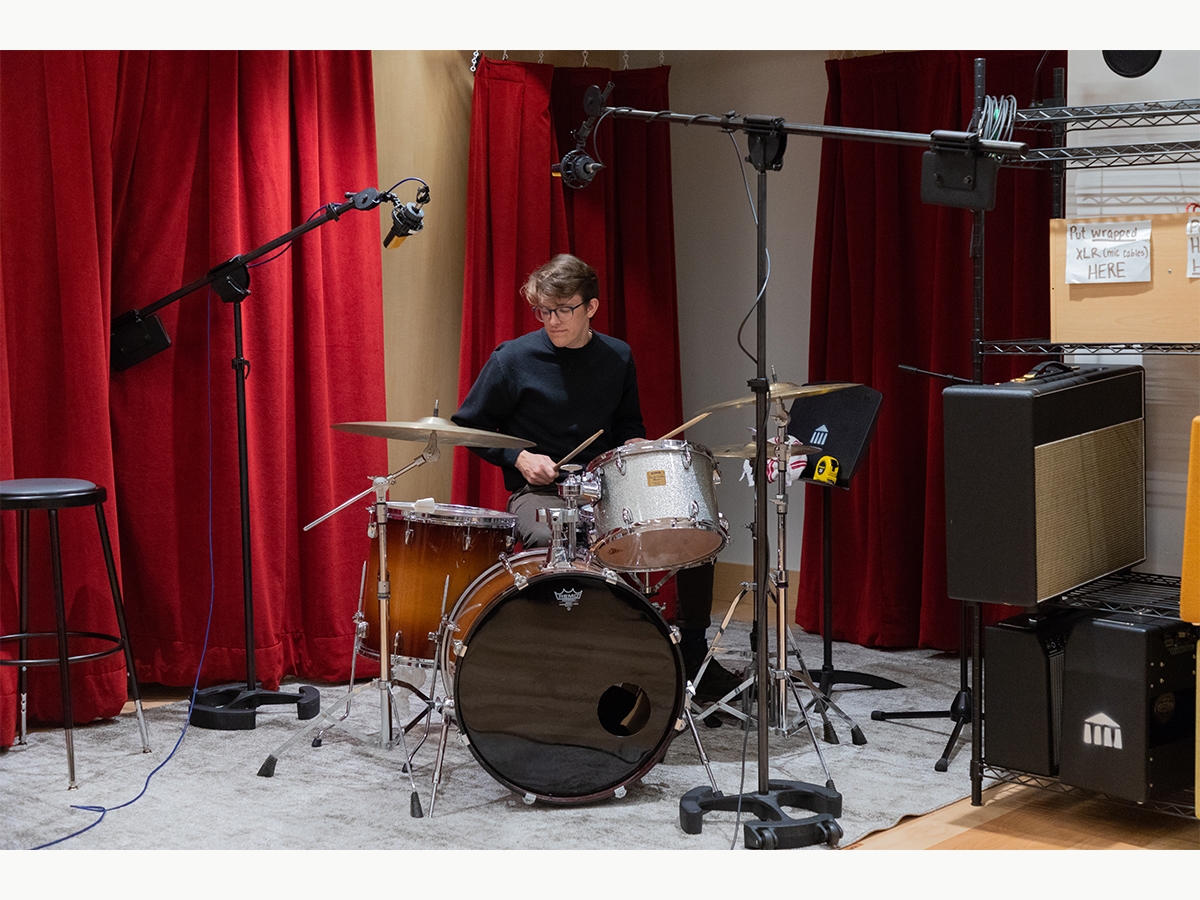
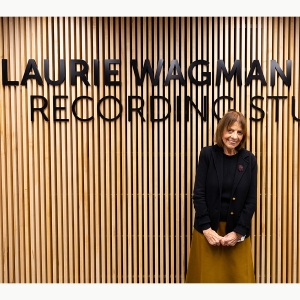
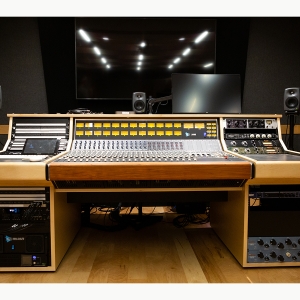
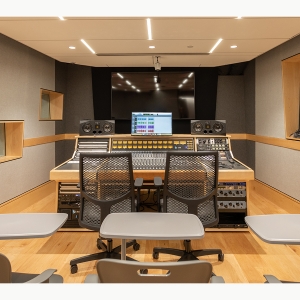
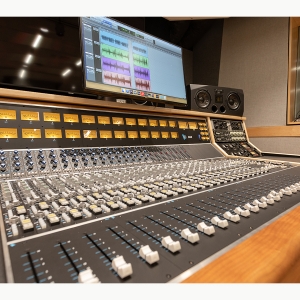
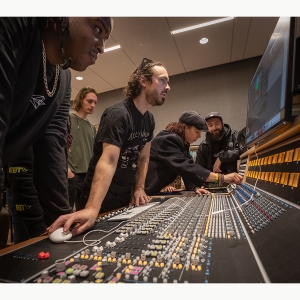
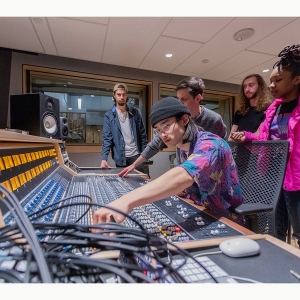
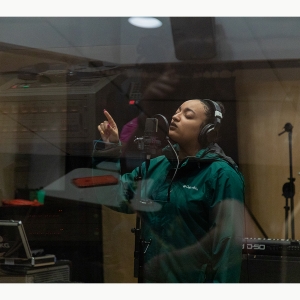
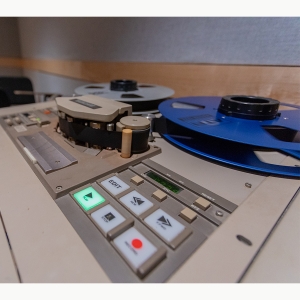
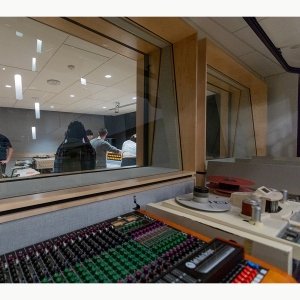
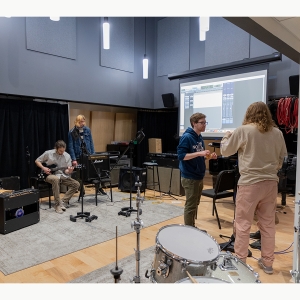
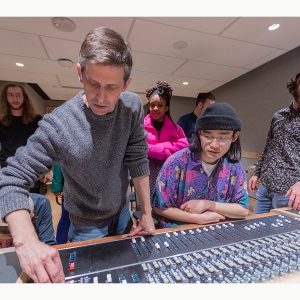
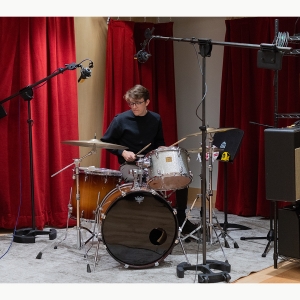
Two recording studios are equipped with state-of-the-art, 24-channel API consoles and Antelope interfaces. There is a surround sound system in Studio A, while Studio B has a pair of Adam reference monitors. Both studios have a number of outboard compressors, equalizers and other effects processors. Studio A will also function as a fully analog space equipped with a 16-track tape machine.
Curriculum
The Music Composition degree program is designed as a launching pad for students interested in writing and arranging music for film, games, animation, theater, dance and multimedia projects. The curriculum provides a foundation in jazz, popular, commercial and contemporary classical genres, with a focus on emerging technologies. You’ll have the opportunity to compose arrangements for UArts’ instrumental and vocal ensembles to perform and record.
Students graduating from the Music Composition program will:
- demonstrate outstanding aural skills;
- demonstrate outstanding theoretical knowledge;
- understand the historical and sociological context of influential pieces and movements;
- express understanding of music in verbal and written form;
- be musically literate and technically proficient performers and composers;
- possess knowledge and experience in diverse musical styles and cultures;
- acquire the skills to use and integrate current technology with their musical efforts;
- compose original scores for solo artists and ensembles;
- develop a unique compositional voice;
- master the fundamentals in composition, orchestration, harmony, counterpoint, etc.;
- rehearse, record and perform original pieces; and
- use all of the above as the basis for creative output.
Sample Curriculum
Duration: four years, full time
Credits: 120 credits
Major requirements: 69 credits
Discipline history: 9 credits
Critical Studies: 33 credits
Free electives: 9 credits
Fall semester: 15 credits
Composition Instruction (3c)
Chorus (1c)
Fundamental Music Theory I, Music Theory I or Advanced Music Theory I (3c)
Fundamental Musicianship I, Musicianship I or Advanced Musicianship I (3c)
Class Piano (1c)
Writing I Placement (3c)
Free elective (your choice) (1c)
Spring semester: 15 credits
Composition Instruction (3c)
Chorus (1c)
Fundamental Music Theory II, Music Theory II or Advanced Music Theory II (3c)
Fundamental Musicianship II, Musicianship II or Advanced Musicianship II (3c)
Music Technology Survey (1c)
Writing II Placement (3c)
Free elective (your choice) (1c)
Fall semester: 15 credits
Composition Instruction (3c)
Fundamental Jazz Theory I, Jazz Theory I or Advanced Jazz Theory I (3c)
Fundamental Jazz Musicianship I, Jazz Musicianship I or Advanced Jazz Musicianship I (3c)
Class Jazz Piano I (1c)
Thinking Through Science (3c)
Free elective (your choice) (2c)
Spring semester: 15 credits
Composition Instruction (3c)
Fundamental Jazz Theory II, Jazz Theory II or Advanced Jazz Theory II (3c)
Fundamental Jazz Musicianship II, Jazz Musicianship II or Advanced Jazz Musicianship II (3c)
Class Jazz Piano II (1c)
Critical Studies (your choice) (3c)
Free elective (your choice) (2c)
Fall semester: 16.5 credits
Arranging (1.5c)
Orchestration (3c)
Composition Instruction (3c)
Comprehensive Musicianship (3c)
Discipline history (your choice) (3c)
Critical Studies (your choice) (3c)
Spring semester: 15.5 credits
MIDI Orchestration (1.5c)
Composition Instruction (3c)
Basic Conducting (2c)
Discipline history (your choice) (3c)
Critical Studies (your choice) (3c)
Critical Studies (your choice) (3c)
Fall semester: 15 credits
Analysis & Composition of Commercial Music (2c)
Composition Instruction (3c)
Discipline history (your choice) (3c)
Critical Studies (your choice) (3c)
Critical Studies (your choice) (3c)
Free elective (your choice) (1c)
Spring semester: 13 credits
Senior Recital
Composition Instruction (3c)
Business of Music (2c)
Critical Studies (your choice) (3c)
Critical Studies (your choice) (3c)
Free elective (your choice) (2c)
Explore the Full Curriculum
Facilities
The School of Music offers a robust set of performance spaces, recording studios, rehearsal rooms and music labs.
-
two state-of-the-art recording studios
-
seven production suites
-
eight rehearsal rooms
-
16 individual practice rooms
-
two dedicated drum practice rooms
-
four smart classrooms that double as rehearsal spaces
-
one circuitry lab
-
one electronic music lab featuring the 4th Moog analog synthesizer, built specifically for the School of Music at UArts
-
two computer labs with keyboard controllers and audio interfaces
-
two drum teaching and practice studios
Laurie Wagman Recording Studios
In November 2019, UArts celebrated the grand opening of the Laurie Wagman Music Studios on the 11th floor of Terra Hall. The two recording studios are equipped with state-of-the-art, 24-channel API consoles and Antelope interfaces. There is a surround sound system in Studio A, while Studio B has a pair of Adam reference monitors. Both studios have a number of outboard compressors, equalizers and other effects processors. Studio A will also function as a fully analog space equipped with a 16-track tape machine.
Faculty Spotlight
The Music Composition (BM) program boasts renowned, award-winning faculty members who have performed across the world with artists including Aretha Franklin, the Four Tops, Patti Labelle, Wynton Marsalis, Joel Frahm, the Philly Pops and more. As a Composition student, you’ll have the opportunity to form close connections with faculty members through one-on-one lessons and collaborations.
At UArts, you'll be taught by faculty who are all in-demand, working professionals.
Profiles & Careers
Career Opportunities
Throughout your studies in the Composition program, you’ll have opportunities to explore emerging technologies and the business side of composition, as well as the academics and theory behind it. You’ll be able to pursue a variety of music composition careers in TV and radio; with orchestras or chamber ensembles; and composing soundscapes for video games, events or industrial applications. You’ll have the option to complete internships, which could include a variety of roles, from administrative positions at music organizations to assistant roles at recording studios.
UArts’ study-away programs encourage students to explore the borderless and timeless language of the arts. Students will be immersed in a new culture, providing historical, intellectual and technical enrichment as they broaden their worldview. With a variety of locations and areas of study, students can meet their artistic and academic goals by studying abroad.
Common careers students could obtain after graduation include
- Arranger/orchestrator
- Composer
- Concert band member or director
- Entertainment booking agent
- K–12 music educator
- Military ensemble member
- Music copyist
- Music editor
- Music director
- Music teacher
- Music supervisor
- Orchestral musician in a major ensemble
- Producer
- Publicist
- Recording engineer
- Studio musician
- Touring musician
Alumni Spotlight
UArts Composition students are set up for success inside and outside the classroom. Graduates are equipped with the experiential knowledge, well-rounded skills and new connections necessary for careers in the music industry.
My time at UArts gave me a ton of knowledge in a lot of different areas, but the biggest thing it did for me was help me to find my niche. Because of that, I have the privilege to make a living in music.
– Reed Bodenstein BM ’16 (Composition) MAT ’17 (Music Education)
How to Apply
UArts offers recommended priority deadlines; students who apply and submit all required materials by the priority deadline will receive first consideration for scholarship aid from UArts. Applications received after the priority deadline will be reviewed on a rolling, space-available basis.
International students requiring an F-1 visa for study in the U.S. might be subject to earlier deadlines to provide time for completion of the visa process. Contact Admissions for guidance if you are an international student who wishes to apply after the priority deadline.
Spring 2024 priority deadline: Oct. 15, 2023
Fall 2024 priority deadline: Feb. 15, 2024
We cannot accept spring 2024 applications after Jan. 8, 2024, and cannot accept fall 2024 applications after Aug. 16, 2024.
We encourage students to complete the FAFSA by March 15
Many students and families have encountered technical challenges while trying to complete the FAFSA this year. If this is the case for you, continue to utilize the FAFSA support resources until your issue is resolved. UArts will ensure that all admitted students who file the FAFSA are eligible for the same institutional funding to support your costs.
The following materials are required for your application.
-
Start or resume your application.
-
The application includes two required short-answer questions: What excites you about UArts? What inspires you?
-
-
If you qualify for a fee waiver from NACAC, CollegeBoard, UArts or another source, indicate that on your application. If the cost of the application fee is a barrier, contact Admissions to request a fee waiver code.
-
Official transcripts must be sent directly from your school by mail, email or a secure electronic document-delivery service.
-
International transcript requirements
-
If you’ve attended high school outside the U.S., read the additional guidelines for international transcripts.
-
-
Transfer student transcript requirements
-
High school transcripts may be waived for transfer applicants who have completed a minimum of 24 credits of college-level coursework, including a minimum of 18 academic, non-studio credits.
-
Official college transcript(s)
-
Official transcripts must be sent directly from all the colleges you have attended by mail, email or a secure electronic document-delivery service.
-
If you’ve attended college outside the U.S., you are required to have an official course-by-course evaluation of your college coursework sent to UArts. Additional guidelines for international transcripts are available.
-
-
-
Auditions or interviews are required for all Dance, Music and Theater programs. After submitting your application, go to your applicant status portal to register for your virtual or on-campus audition day. View a full list of audition requirements by program.
-
Letters of recommendation from teachers or mentors are optional and may be submitted by the recommender via email to undergradcredentials@uarts.edu or by your high school through a secure electronic document-delivery service.
About the School of Music
The School of Music at University of the Arts is dedicated to the preparation and training of musicians for careers in music performance, production, recording, all aspects of the music business, composition and music education. Your growth as a musician is the primary goal of the program. In 2020, the School of Music was ranked #2 in The 10 Best “Hidden Gem” Music Schools by Music School Central.
The school trains you to be a professional of the highest caliber through a comprehensive curriculum that includes private lessons with an actively performing faculty, an abundance and diversity of ensembles and performance experiences, and a focus on information literacy and critical thinking.
Performance opportunities sharpen your technical and improvisation skills and increase your knowledge of repertoire and styles. The school’s numerous performance ensembles represent a wide range of styles and categories of classical, hip-hop, jazz, R&B and world music. You’ll be involved in a rigorous schedule of performances: UArts produces over 150 concerts and recitals each year.
Get Started

Start your application
Begin your application today. Our admissions team will help you throughout the process.
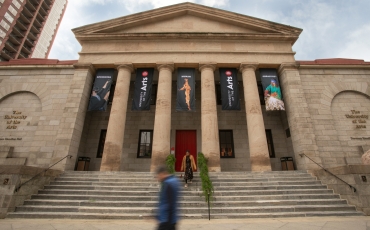
See UArts for Yourself
The best way to get to know UArts is by visiting our campus in person. Come see a show, visit a gallery, and get to know the neighborhood.

Not sure where to start?
We're glad you want to learn more. Our admissions team is happy to send additional information about our school.





